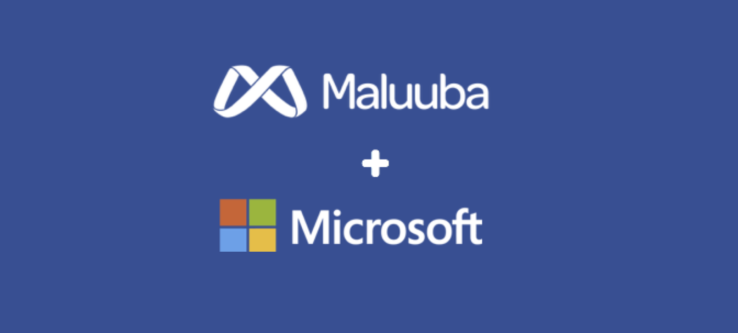

Microsoft has acquired Canadian startup Maluuba, a company founded by University of Waterloo grads Kaheer Suleman and Sam Pasupalak that also participated in TechCrunch’s 2012 San Francisco Startup Battlefield competition. Maluuba focuses on natural language processing, in service of pursuing general artificial intelligence, or building computers that can think like people.
The Montreal-based company focuses on using deep learning and reinforcement learning to increase the proficiency and effectiveness of computer-based systems that can answer questions and make decisions, and Microsoft notes in a blog post that its work will help with Microsoft’s broad goal of making AI more accessible and useful to the general public.
Maluuba’s focus has been on improving computer systems’ ability to comprehend what they’re reading, to understand natural dialog between individuals and to get better at tasks like memory, common-sense reasoning and finding information when they have a gap in their own knowledge.
These are huge problems to tackle, and Maluuba notes that it became “apparent” that the best way to make progress was to tap into the significant resources made available from a larger partner. Microsoft’s goals with AI align with the startup’s own, the company says in its announcement of the news, and in addition to financial resources, the tech giant also offers access to billions of users, as well as infrastructure and talent support.
Montreal’s expertise in AI is gaining global attention; Google recently opened a research office focused on AI there, and invested funds in local academic efforts focused on the area. Leading global AI researcher Yoshua Bengio and Maluuba advisor, who heads the Montreal Institute for Learning Algorithms, is also joining Microsoft as an advisor, notes Microsoft EVP of AI Harry Shum in the blog post announcing Maluuba’s acquisition. It’s hard to overstate the significance of Microsoft gaining access to Bengio’s expertise, especially as all major tech companies are investing considerable resources in AI research and product development.
Even at its Disrupt launch, early in Maluuba’s life cycle, the company impressed by demonstrating a virtual assistant product that could manage a wide range of domains. Cross-domain expertise is typically difficult for intelligent software – most successful efforts in AI to date have focused on building good results with a narrow domain focus, but Maluuba’s more general focus is the golden carrot in terms of product breakthroughs for a lot of the big players in tech.
Developing…

